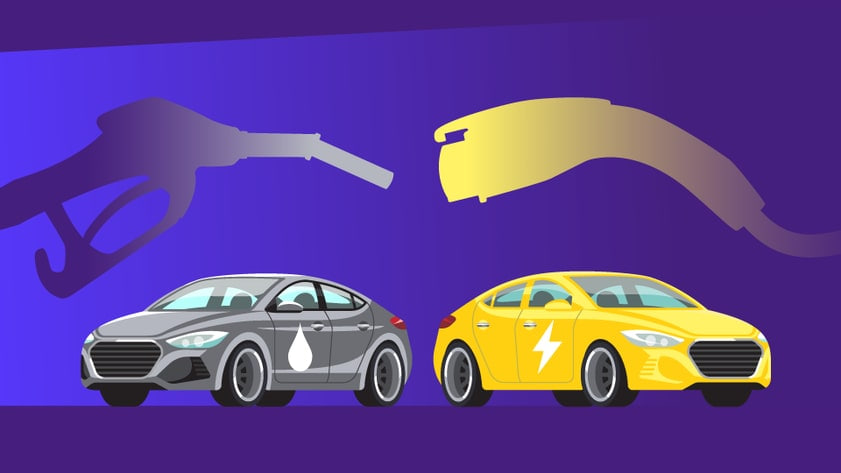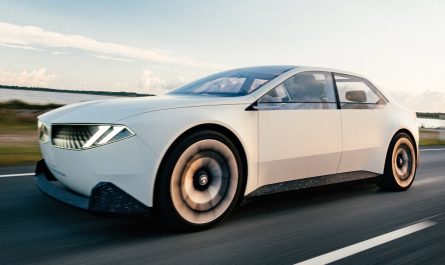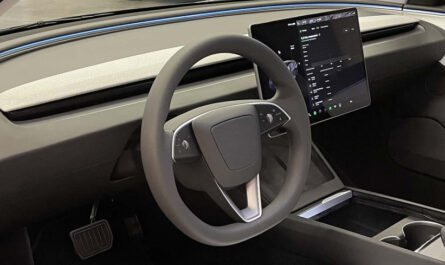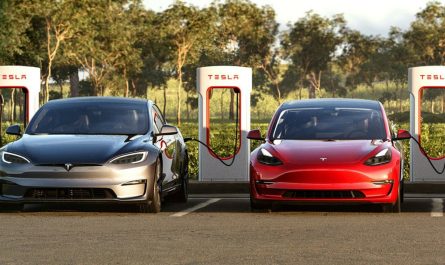Understanding Electric and Hybrid Vehicles
Electric and hybrid vehicles are reshaping the automotive landscape, offering environmentally friendly alternatives to traditional fuel-powered cars. Electric vehicles (EVs) operate exclusively on electric power, while hybrid vehicles utilize a combination of an internal combustion engine (ICE) and an electric motor to enhance fuel efficiency.
There are different categories within these vehicles. All-electric vehicles, commonly called battery-electric vehicles (BEVs), rely solely on batteries to power an electric motor. These vehicles require charging from external power sources, such as charging stations and do not contain an internal combustion engine. This makes them one of the cleanest options available, contributing significantly to reduced greenhouse gas emissions.
Plug-in hybrid electric vehicles (PHEVs) represent a blend of electric and conventional technologies featuring electric motors and gasoline engines. This enables drivers to operate the vehicle in electric mode for shorter distances while having the option to switch to gasoline for longer trips. Charging the battery using a standard outlet or charging station enhances their versatility.
Traditional hybrid vehicles, or simply hybrids, utilize an internal combustion engine and an electric motor, but they cannot be plugged in to charge. Instead, they generate electricity through regenerative braking and excess engine power. This design allows hybrids to be more fuel-efficient than their gasoline-only counterparts, as the electric motor can assist in reducing the load on the ICE during acceleration.
Key components across these vehicle types include batteries, electric motors, and, in the case of hybrids, internal combustion engines. The battery is the energy storage unit, while the electric motor provides propulsion and assists the ICE in hybrids for improved efficiency. Understanding these fundamental differences and technologies will aid potential car buyers in making informed decisions about their next vehicle.
Cost Analysis: Initial and Long-term Expenses
When evaluating the financial implications of choosing between electric and hybrid vehicles, it is essential to consider both initial and long-term expenses. Generally, electric vehicles (EVs) have a higher upfront cost than hybrids due to the expense of the battery technology. However, recent advancements in manufacturing are beginning to narrow this gap, making electric cars increasingly competitive in the market.
Regarding available incentives, governments often provide tax credits for electric and hybrid vehicles, which can significantly reduce the purchase cost. For example, federal and state tax credits for electric cars may reach several thousand dollars, while hybrids typically qualify for smaller incentives. These financial benefits can influence a buyer’s decision and should be thoroughly examined before purchasing.

The ongoing expenses associated with owning an electric car often point to significant savings. Electric vehicles tend to have lower fuel costs when compared to gasoline-powered cars, as electricity is typically less expensive than gasoline on a per-mile basis. Moreover, the maintenance costs for electric vehicles are generally lower, given that they have fewer moving parts and do not require oil changes. In contrast, hybrid vehicles, while still more efficient than traditional cars, may incur more extraordinary maintenance expenses over time due to their dual powertrains.
Insurance costs can also vary between the two types of vehicles. Electric cars may attract lower rates depending on the insurance provider and the inherent safety features of electric models. When considering the total cost of ownership, it’s also prudent to assess potential resale values, as electric vehicles are gaining popularity and may maintain their value better over the years.
In conclusion, while electric vehicles may command a higher initial investment, their lower ongoing costs, combined with available incentives, position them as potentially more economical in the long run compared to hybrid alternatives. Each buyer should carefully evaluate their circumstances to determine which option best aligns with their financial goals.
Environmental Impact and Sustainability
The environmental implications of electric and hybrid vehicles are significant factors influencing manydecisionsrofdecisions today. One of the primary considerations is the carbon emissions generated throughout these vehicles’ entire life cycle, including their manufacturing, usage, and eventual disposal. Electric vehicles (EVs) are often heralded for their potential to eliminate tailpipe emissions, thus contributing to better air quality. However, it is essential to acknowledge that the manufacturing process of EVs, particularly the production of lithium-ion batteries, also results in considerable carbon emissions. The sourcing of materials such as lithium, cobalt, and nickel plays a critical role in this equation, raising questions about the sustainability of battery production and its associated environmental impact.
On the other hand, hybrid vehicles combine an internal combustion engine and an electric motor. This duality can result in lower emissions than traditional gasoline-powered cars, especially during city driving, where regenerative braking increases efficiency. However, hybrids still produce greenhouse gases during operation, and their reliance on fossil fuels can undermine their sustainability. When considering the environmental impact, assessing the emissions produced throughout their life cycle is worthwhile.
Additionally, the disposal methods for electric and hybrid vehicle batteries pose another environmental challenge. Recycling infrastructure is still developing; not all materials are efficiently recovered from spent batteries. This raises concerns about waste management and resource depletion. Therefore, while electric vehicles boast significant benefits over conventional cars in terms of emissions, overall sustainability remains complex. As consumers weigh their options, it is imperative to consider the operational emissions and the environmental effects associated with the entire life cycle of electric and hybrid vehicles.
Electric vs. Hybrid: Which is the Better Choice for Your Next Car?
Driving Experience and Practicality: Which Fits Your Lifestyle?
The choice between electric and hybrid vehicles significantly impacts the driving experience and is significantly influenced by individual lifestyles and daily routines. Electric vehicles (EVs) are renowned for their quiet operation and instant torque, providing a smooth and responsive driving experience. However, potential buyers often express concerns about range anxiety— the fear of running out of battery before being able to recharge. Most modern EVs offer substantial ranges, usually exceeding 200 miles on a single charge, but that may still not suffice for drivers with long daily commutes or those planning extensive road trips.
On the other hand, hybrid vehicles offer a blend of gasoline engines and electric motors, which can alleviate range anxiety as they do not solely rely on electric power. Drivers utilizing hybrids benefit from the flexibility of refuelling at conventional gas stations, making them a practical choice for those engaging in longer journeys or those residing in areas with limited charging infrastructure. Moreover, hybrid vehicles commonly require fewer frequent stops for refuelling, thus contributing to their everyday usability.
Charging infrastructure plays a critical role in the decision-making process for prospective buyers. Those who live in urban settings may find EV charging stations readily available, while those in more rural environments may struggle to access sufficient charging points. Additionally, the convenience of home charging allows EV owners to charge overnight, effectively ensuring their vehicles are ready for daily drives. In contrast, hybrid owners maintain the simplicity of traditional fueling while occasionally benefiting from electric power for shorter trips.
Ultimately, selecting electric and hybrid vehicles comes down to one’s unique driving habits and lifestyle needs. For city dwellers and shorter commutes, an EV may be most suitable, while for those with long-distance travel or less access to charging facilities, a hybrid could present a more practical solution.



